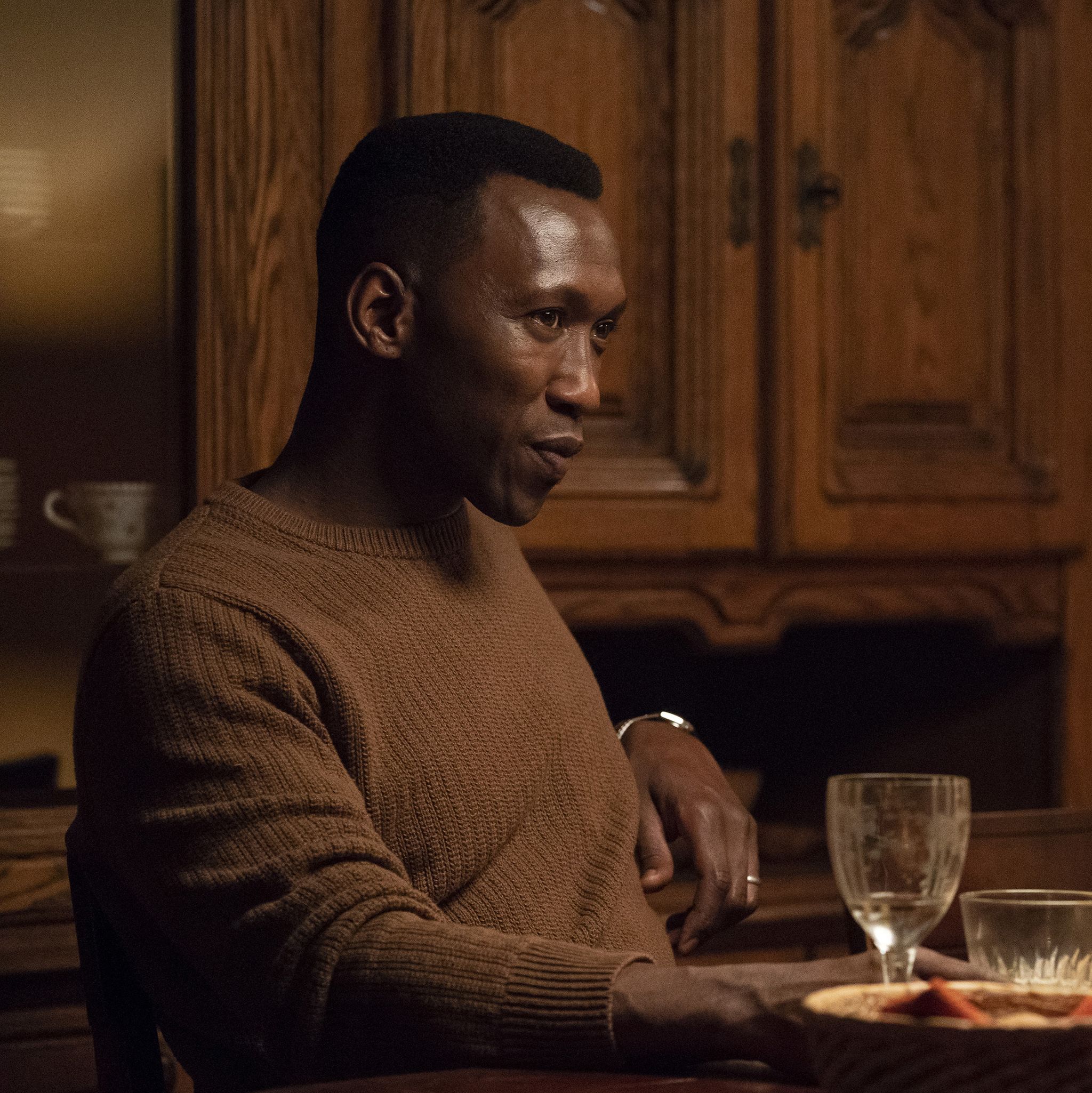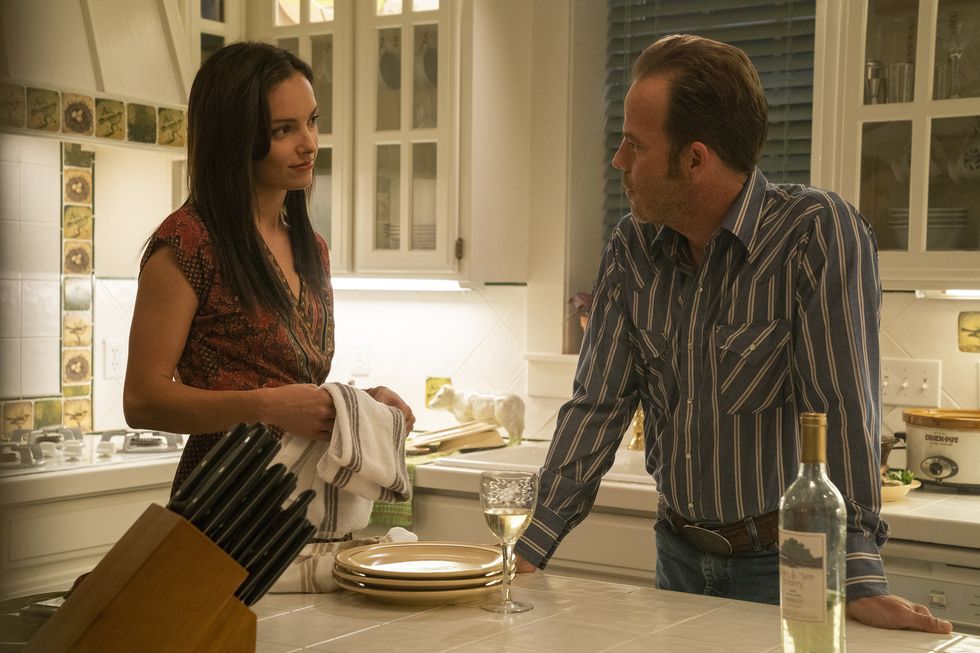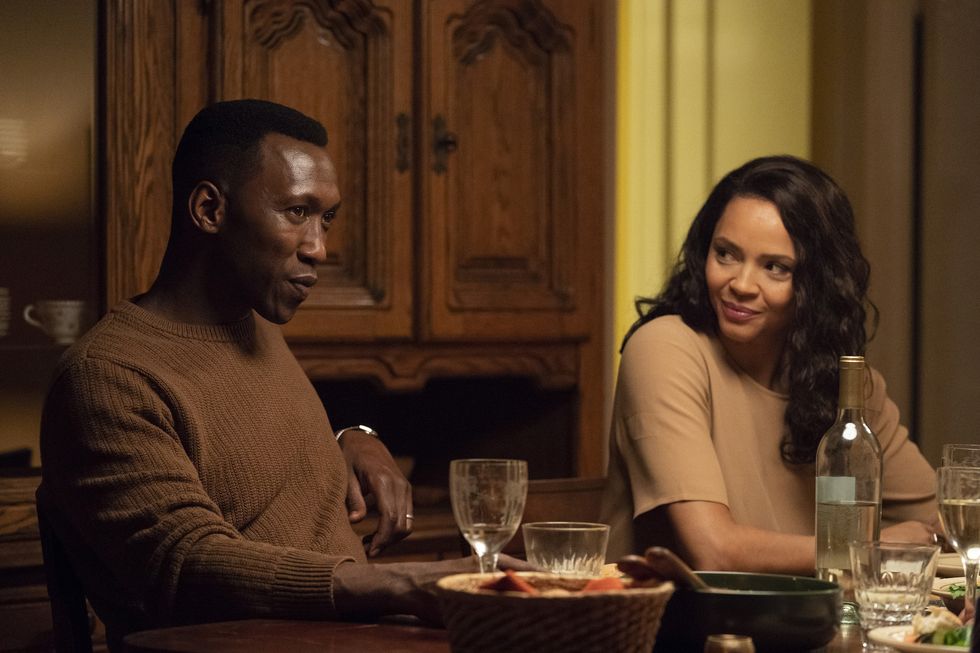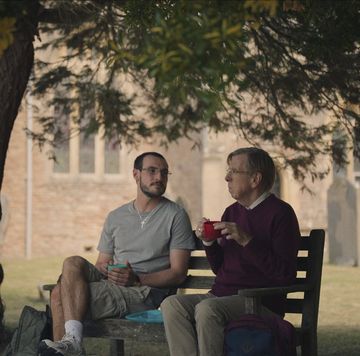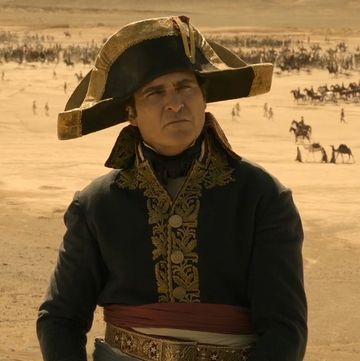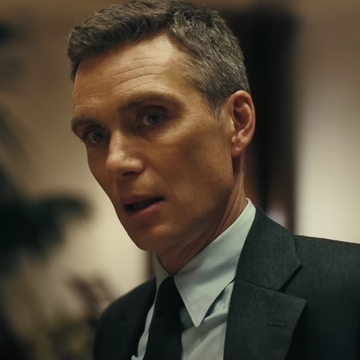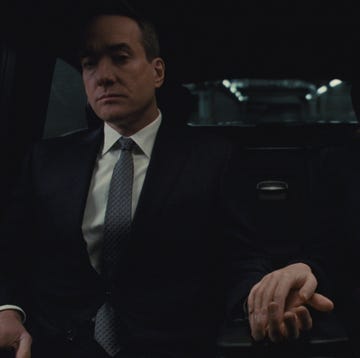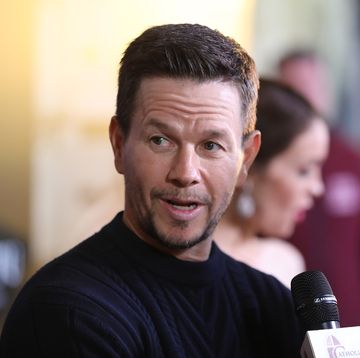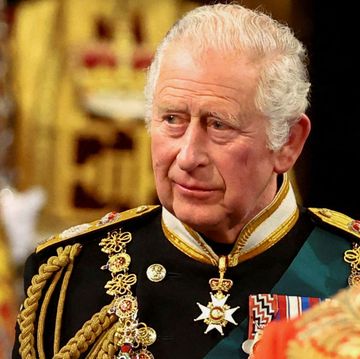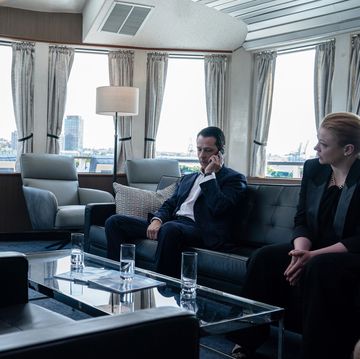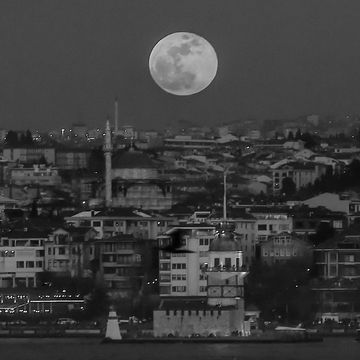I’m going to be honest. I laughed aloud when old, withering Mahershala Ali, sitting alone in his house, finally picked up the book his wife wrote 25 years ago, found an important passage, and said aloud to no one in particular: “Maybe I should have read this a long time ago.”
This is the type of subtlety you get in True Detective Season Three. It’s one of a handful of developments that finally arrive in a pivotal fifth episode in what has been a very slow moving season. At this point, I kinda feel as ancient as 70-year-old Hays, waiting for something to happen in this season other than another blatant red herring. This is a show that has taken such careful steps to sneak around the answer that it never actually says anything at all.
But we finally get to the point in this episode. Kinda.
After five episodes, this show gets around to telling us who was initially charged with the murders of the Purcell kids in 1980. Woodard was killed by Hays during the showdown at his house. There, investigators found items that appeared to belong to Will and Julie Purcell. We flash-forward to 1990, when Woodard’s family is trying to appeal his posthumous murder conviction in light of the news that Julie Purcell is alive.
So there’s one thing, even if the conviction is wrong, as we’ve known this whole season—and find out again later in the episode. In 1990, Hays brings West a photo of the backpack recovered from Woodard’s property. It certainly doesn’t look like it was in an explosion, and Hays thinks that it might have been evidence planted at the scene.
But before he can convince West of this theory, they get another piece of evidence. A call to the tip hotline.
Here’s what the woman in the call—who might be Julie—says:
You’re looking for me I saw on the television. I saw him on the television. Leave me alone. Make him leave me alone. Tell him to leave me alone… I know what he did… The man on TV acting like my father… Where’s my brother? Will... I don’t know what he did with him. We left him resting… Tell him to leave me alone… He took me and I’m never coming back...
Okay, so on first listen, this doesn’t really seem to be good for Tom Purcell.
But before we can see how the detectives react to the call, we go back to 2015, where Old Hays and Old West are having a nice little reunion. There, Old Hays explains to Old West that Lucy Purcell is the one who wrote the ransom note back in 1980. He learned that because he finally read his wife’s fucking book.
“I think she was trying to make Tom feel better. Trying to get him to let go,” Hays says.
“So what if she did. We already knew she had some sort of connection to… to that guy you just said,” West responds.
Hays: “He came to see me. Day after what happened. Hoyt. I made a decision. I had other things to think about. Including my family. He knew about what we done. He seemed like he was in the dark with some stuff too.”
This conversation is more aggravating than it is revealing, but there are a few things worth noting.
For one, it doesn’t seem like a big deal to these guys that Lucy wrote the note. Hays seems to think she just did it to make Tom feel better. But what’s interesting here is West’s disdain for Tom. Here, in 2015, he won’t even say his name? Back in 1990, the two were friends. So what happened? It seems to have something to do with that message on the tip line we heard.
Here are the questions, though: What is it that Hays and West did? Why did Hoyt come to visit Hays the day afterward?
This again seems to connect to the most popular theory, that Hays and West find Julie and let her go because she wanted to be left alone (as she repeats over and over). But what’s the deal with Hoyt? One common theory is that Hoyt was somehow behind a big pedophile ring that Julie was trying to escape. Was Tom abusing his daughter? Was Hoyt abusing Julie? Both?
But if you listen closer to 1990 Julie's phone call, there seems to be something else going on here. Is it possible that she's literally saying that Tom is not her father? What we know is Hoyt lost a granddaughter, which is what inspired him to create the Ozark Children's Outreach Center. One theory could be that Hoyt or his daughter lured Julie away to convince her that she was kidnapped by her father Tom. And that would explain why the two were going to visit these strange adults in the woods. When she's saying the man who says he's her father, she's alluding to the fact that she doesn't believe Tom is her father. But wouldn't she know that Will is dead? Certainly that would have been massive news, and she would have learned fairly quickly what happened to her brother. Or is it possible that Tom and Lucy kidnapped Hoyt's granddaughter and, upon learning that, Will and Julie escaped?
It feels like all the pieces are there, but the way things are moving, these key details will be trickled out over these final three episodes.
Matt Miller is a Brooklyn-based culture/lifestyle writer and music critic whose work has appeared in Esquire, Forbes, The Denver Post, and documentaries.
